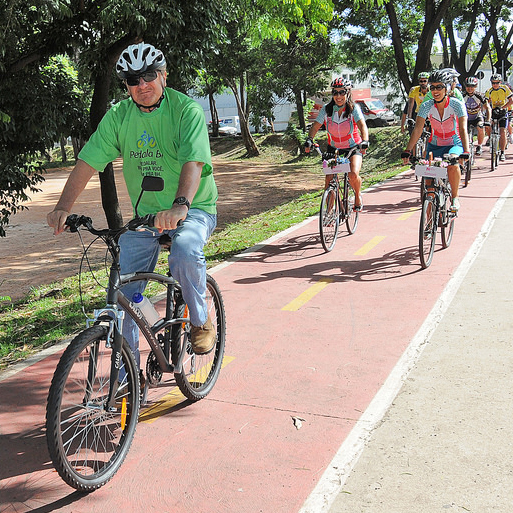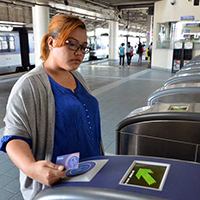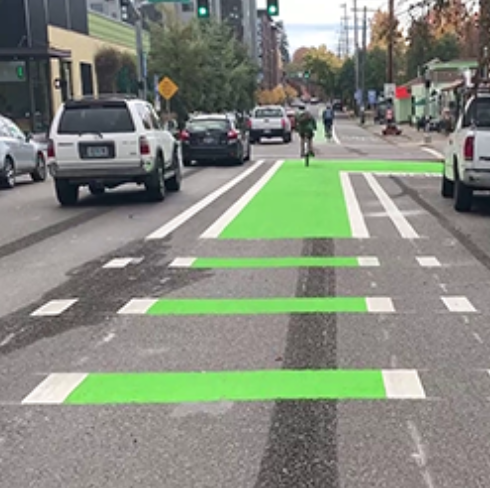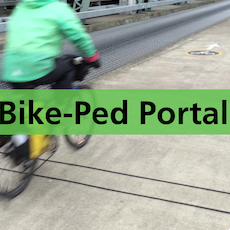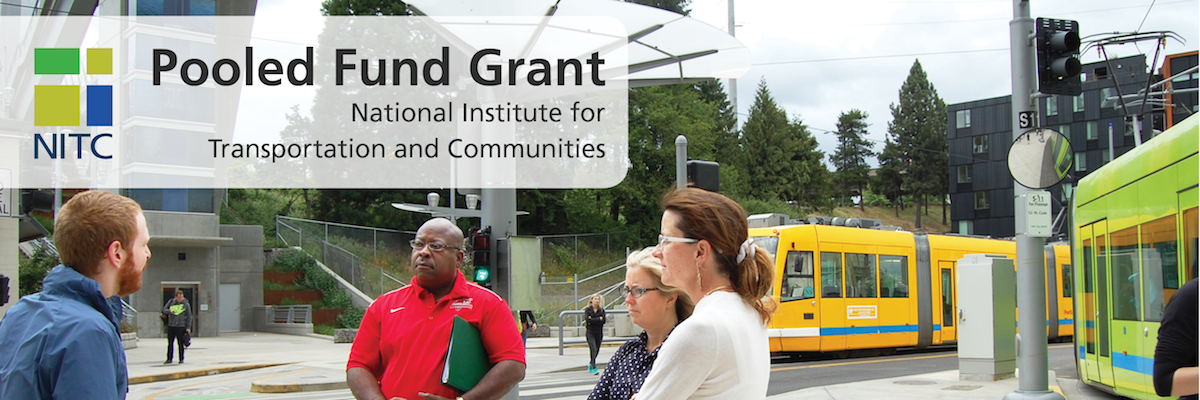
Our Pooled Fund program offers a process by which cities, counties, MPOs and other regional or local agencies can pool relatively small pots of research dollars to then leverage NITC matched funds for a single, collaborative project.
POOLED FUND PROJECTS FUNDED
Exploring Data Fusion Techniques to Derive Bicycle Volumes on a Network (2022)
Active transport modes such as bicycling are associated with many advantages including lower congestion and emission levels and improvement in personal health. Many cities are interested in increasing bicycle activity to take advantage of these benefits. This project developed a method to combine data from different sources to establish bicycle volumes. Traditional bicycle counters can provide data for limited sections of the bike network. While limited in location, they count everyone who bikes by. Meanwhile, GPS & mobile data cover the entire transportation network, but that data only represents those travelers who are using smartphones or GPS. Combining the traditional location-based data sources with new, crowdsourced data offers better accuracy than any could provide alone. For transportation agencies wishing to support active travel to meet various sustainability, public health, and climate-related goals, quickly having accurate data for the entire bicycle network represents a giant leap in the right direction. Read how it works: National Study Offers New Bike Count Models, Combining Traditional Counters And Emerging GPS Data.
Applying an Equity Lens to Automated Payment Solutions for Public Transportation (2021)
Transit agencies are modernizing their fare collection systems in an effort to reduce the expense of collecting cash and increase operating efficiency. Yet, the equity implications for people who may be excluded or greatly inconvenienced by paying for transit through non-cash based collection technologies are not well understood. This multi-year study on automated transit fare collection offers a key finding that won't surprise you: Despite the convenience, the rush toward cashless fare systems has created barriers for lower-income riders seeking to use transit. Results from focus groups, surveys, and a review of current transit agency practices suggest that continuing to accept cash is a crucial way to keep transit accessible. However, dealing with cash has drawbacks: it’s time intensive and expensive. Using a detailed cost-benefit model, the researchers explored the costs for agencies to maintain some cash options and found that some simple approaches can be quite effective. The best bang for the buck? Cash collection on board buses.
Read the project brief to learn more: The Push to Cashless Transit Fare Leaves Some Riders Behind.
Contextual Guidance at Intersections for Protected Bicycle Lanes (2019)
Protected bike lanes are becoming increasingly common around the United States, yet there is little guidance for how to extend the protected lanes through one of their most dangerous links: the intersection. Led by Chris Monsere and Nathan McNeil of Portland State University in collaboration with Toole Design Group, this project offers contextual guidance for designing intersections that are comfortable for cyclists.
Learn about that guidance in an article published in Transportation Research Record: User-Rated Comfort and Preference of Separated Bike Lane Intersection Designs
In February 2019 the final report was published; learn more about the finished project: Biking Safely Through the Intersection: Guidance for Protected Bike Lanes
Online Non-Motorized Traffic Count Archive: BikePed Portal (2016)
Robust bicycle and pedestrian data on a national scale would serve numerous purposes. In order to organize and promote the collection of nonmotorized traffic data, a team of transportation professionals and computer scientists has created a national nonmotorized traffic count archive called Bike-Ped Portal. This archive enables data sharing by centralizing both continuous and short-duration traffic counts in an online archive.
Learn more about BikePed Portal dashboard and accessing and archiving count data.
This NITC grant is part of the University Transportation Center program, funded by the U.S. Department of Transportation, and is a partnership between Portland State University (PSU), the Oregon Institute of Technology (Oregon Tech), University of Arizona (UA), University of Oregon (UO), University of Utah (UU), and University of Texas at Arlington (UTA).

